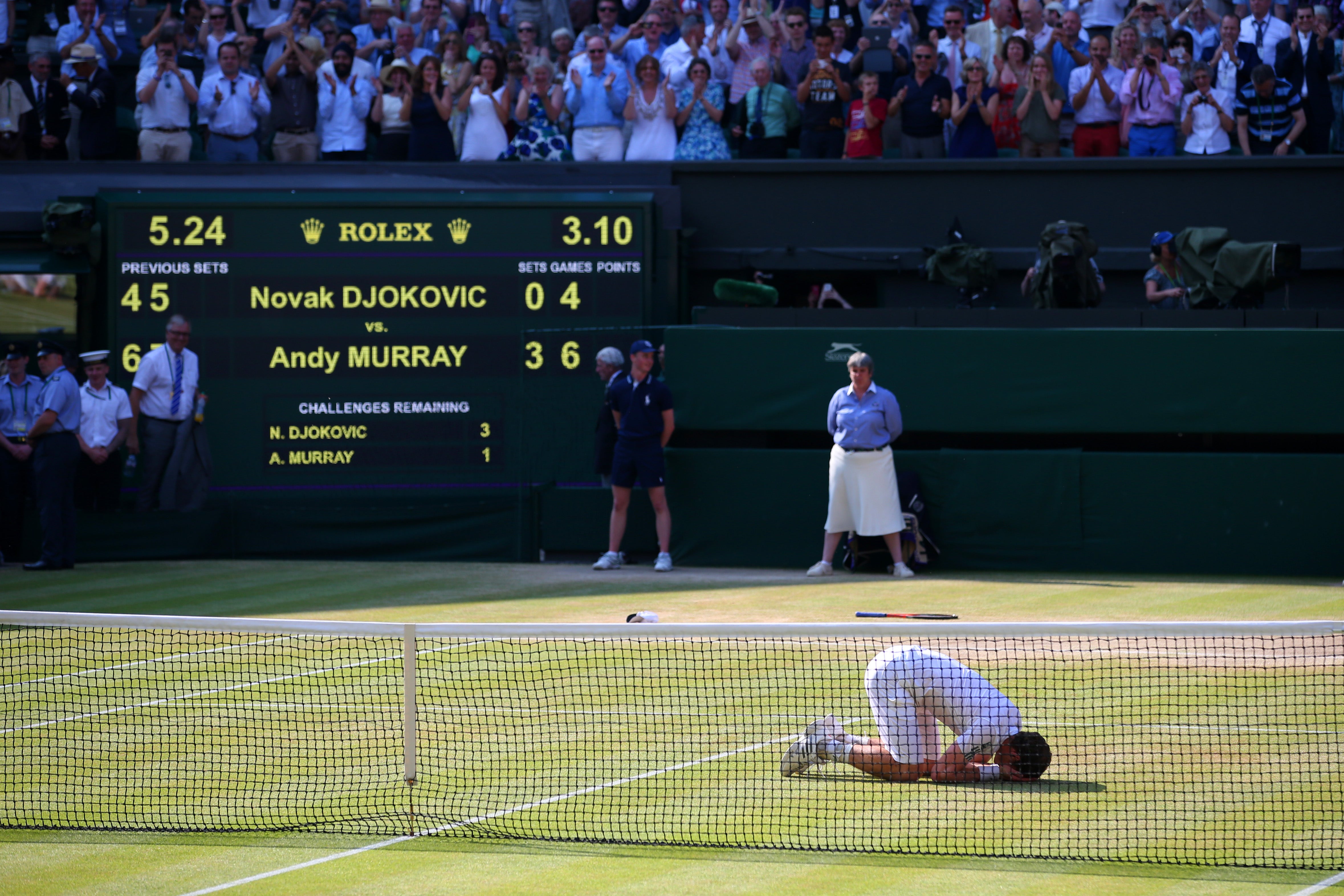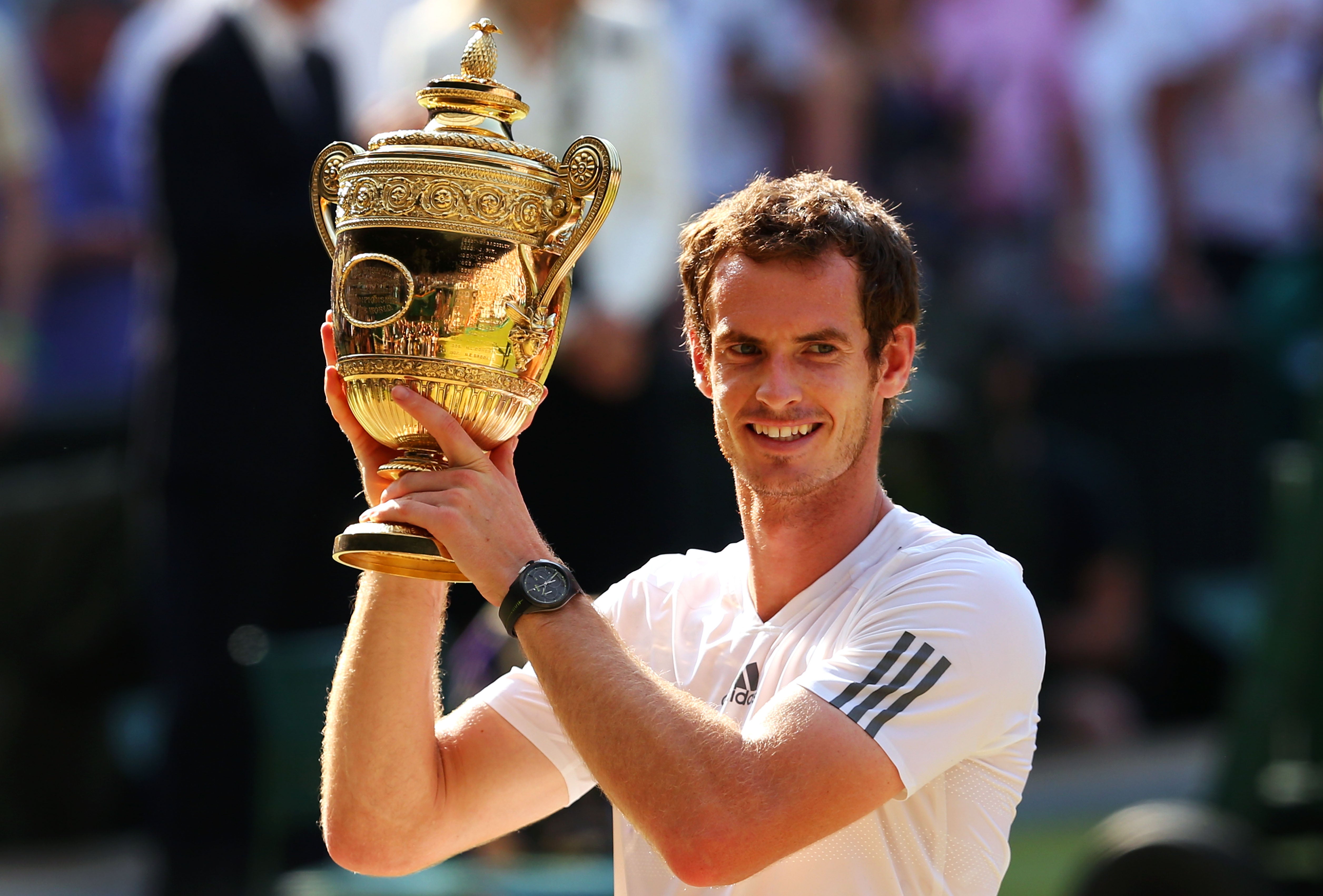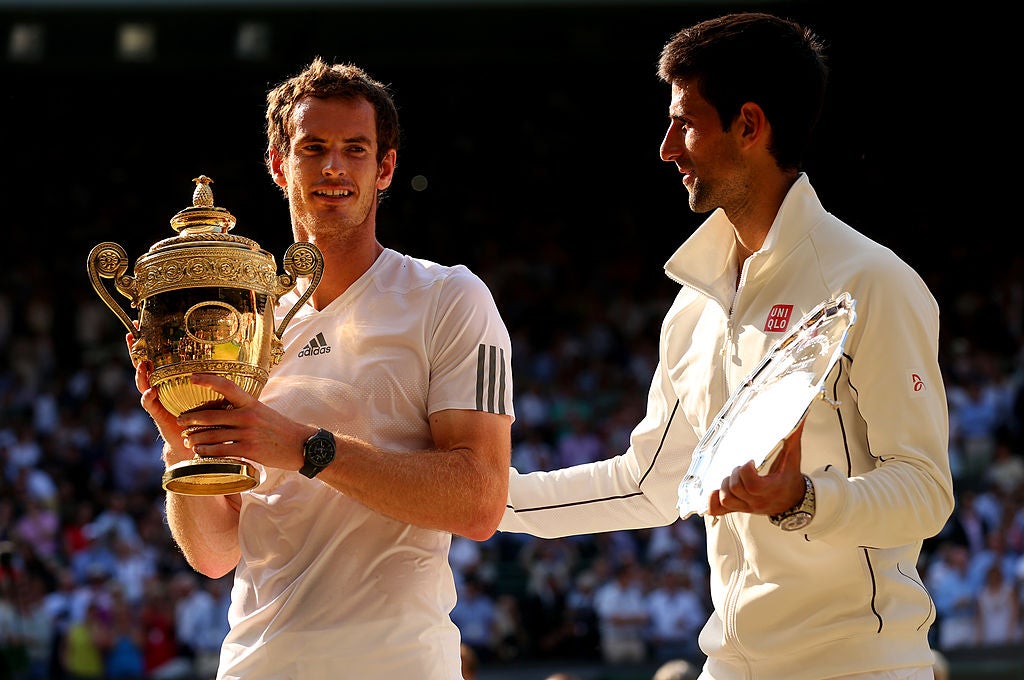The day Andy Murray won Wimbledon - 10 years on
Murray ended Great Britain’s 77-year wait for a men’s singles champion as he triumphed against Novak Djokovic in the final
Your support helps us to tell the story
From reproductive rights to climate change to Big Tech, The Independent is on the ground when the story is developing. Whether it's investigating the financials of Elon Musk's pro-Trump PAC or producing our latest documentary, 'The A Word', which shines a light on the American women fighting for reproductive rights, we know how important it is to parse out the facts from the messaging.
At such a critical moment in US history, we need reporters on the ground. Your donation allows us to keep sending journalists to speak to both sides of the story.
The Independent is trusted by Americans across the entire political spectrum. And unlike many other quality news outlets, we choose not to lock Americans out of our reporting and analysis with paywalls. We believe quality journalism should be available to everyone, paid for by those who can afford it.
Your support makes all the difference.Andy Murray’s main memories of the biggest moment of his life are of tension and fatigue.
“I remember it being unbelievably stressful and then at the end of it huge relief,” he says of the victory over Novak Djokovic that ended Great Britain’s 77-year wait for a men’s singles champion at Wimbledon.
The year before had ended with Murray choked by tears on Centre Court following defeat by Roger Federer in his first final.
Twelve months later and with a long-awaited first slam title under his belt in New York, Murray faced another of his major foes with history at his fingertips.
Ten years on, the feelings remain seared in his mind.
“I was unbelievably nervous before the final and I also remember feeling like my team were really nervous,” he tells the PA news agency.
“They were struggling to hide it. My physical trainer, when we were doing the pre-match warm-up, he was fumbling all of the balls during the reaction drills.”
Even ‘Old Stone Face’ Ivan Lendl, the coach who had helped turn Murray into a slam champion, was not immune to the tension.
“Ivan doesn’t usually talk loads but before the final he was chatting a lot and I just felt my team were feeling it as well,” adds Murray.
“After the match I was exhausted. Twenty or 30 minutes after we got off the court, I was sitting with my wife and I was wanting to sleep. That is not usually how you feel after a match, normally the adrenaline makes it hard to sleep but I was completely spent after the match.”
The history books show Murray won in straight sets, 6-4 7-5 6-4, yet even when he served for the match in a tortuous game that somehow encapsulated all his struggles, it still felt on a knife edge.
Three match points came and went, then there were three break point chances for Djokovic as the tension around Centre Court ramped up and up. Murray stood firm, saving each one confidently, before a fourth chance came the Scot’s way, and this time his opponent netted.
The reaction from Murray was of sheer wide-eyed joy mixed with disbelief before the enormity of it all caught up with him.


For his opponent, the memories are of course very different, although Djokovic could find happiness amid his disappointment for the rival just a week older than him against whom he had been competing since childhood.
“It was not a great result for me obviously in the end, painful to lose a grand slam final, especially the Wimbledon final,” says Djokovic, who has lost only twice at SW19 in the decade since.
“But I was happy for Andy because he deserved it. He was working so hard to get his hands on the Wimbledon title.
“I had to congratulate him because he was a better player that day and it was kind of a perfect scenario for Great Britain and for him as a British player to win at Wimbledon on Centre Court.”
It was kind of a perfect scenario for Great Britain and for him as a British player to win at Wimbledon on Centre Court.
Among the crowd living every twist and turn was an 11-year-old Jack Draper, who eight years later made his own Centre Court debut.
“Watching Andy win Wimbledon on Centre Court in 2013 was an experience that I will never forget,” says the British number four.
“I was only 11 at the time but, looking back, it was definitely a moment that made me more motivated than ever to become a professional tennis player – and compete on the biggest stages against the world’s best players.
“I was very lucky to have Andy as a role model and hope that in the future I can do the same for young players.”
The experience was not at all the same for Murray’s brother Jamie, who was notably absent among the family and friends supporting the Scot courtside.
“I watched the final on a laptop in Stuttgart with my wife,” says the doubles specialist, who had already moved on to his next tournament.
“Of course it would have been great to be there to see him win but reality was it definitely wasn’t a sure thing. He was playing Novak, he’d lost a bunch of finals to that point.
“I was just glad that he won. I didn’t really care that I missed it. Obviously it was a weird situation to find yourself watching the match. The stream wasn’t even particularly great.

“I know what it meant to him to finally get his hands on the trophy. I don’t even remember what it was like when I saw him. Everything had kind of died down by then. It was a bit lame but that’s just the way it was.”
The Wimbledon victory cemented Murray’s place as one of Britain’s sporting greats, and he followed it up three years later with a second title.
Jamie does not believe achieving his biggest goal changed his brother, saying: “He was still incredibly motivated to do the best he could on the court and try to win more grand slams, that his talent probably deserved.
“That was an amazing moment in tennis where these four guys were playing in the semis and finals of every big tournament. They hoovered up everything for so long. I know Andy only won three but he played in 11 grand slam finals, which is a crazy career when you think about it.”



Join our commenting forum
Join thought-provoking conversations, follow other Independent readers and see their replies
Comments